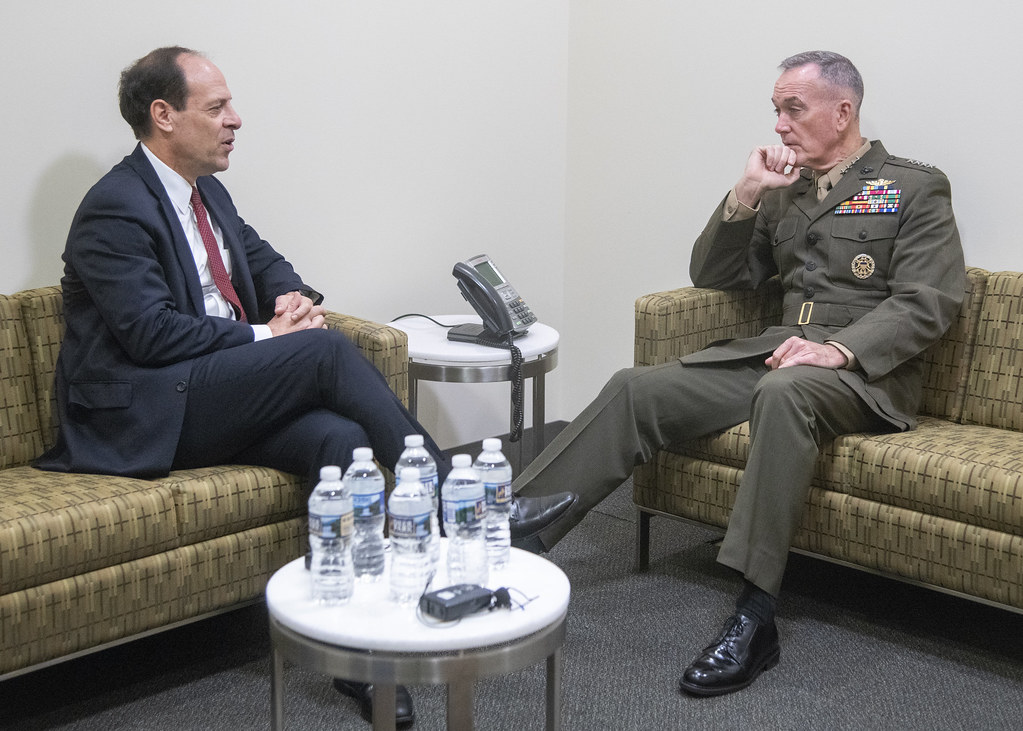How to Legally—and Illegally—Fire Inspectors General
It’s worth taking a step back to understand how Trump’s recent actions deviate from the contemporary legal framework governing inspectors general.

Published by The Lawfare Institute
in Cooperation With

In the span of just four days, President Trump removed two inspectors general from their posts. First, on April 3, Trump fired Intelligence Community Inspector General Michael Atkinson, who had notified Congress of the whistleblower complaint that led to the president’s impeachment. Then, on April 6, Trump removed the acting inspector general of the Pentagon, Glenn Fine, who had just been assigned to monitor the government’s implementation of the $2.2 trillion coronavirus relief bill as chairman of the Pandemic Response Accountability Committee. As reports of mass firings are beginning to appear, it’s worth taking a step back to understand how Trump’s recent actions deviate from the contemporary legal framework governing inspectors general.
The main law governing inspectors general is the Inspector General Act of 1978. The act establishes offices of the inspector general in various executive branch departments and agencies (today, there are approximately 70). The offices are responsible for agency oversight: They manage audits and investigations to uncover waste, fraud or abuse and recommend policies to promote efficiency and effectiveness.
The Inspector General Act establishes two types of inspectors general: establishment inspectors general and “designated federal entity” (DFE) inspectors general (other statutes establish special and permanent inspectors general, including the intelligence community inspector general). Establishment inspectors general are appointed by the president with the advice and consent of the Senate and are typically affiliated with cabinet departments or major federal agencies. DFE inspectors general are appointed by the head of an agency and are typically associated with smaller entities, like boards and commissions, or with intelligence agencies in the Department of Defense. The vast majority of inspectors general serve indefinitely, and the Inspector General Act requires that an inspector general be appointed “without regard to political affiliation and solely on the basis of integrity and demonstrated ability.”
The act authorizes inspectors general to access all records and materials available to the agency that relate to programs and operations that the inspector general oversees. Inspectors general report to the heads of the agencies in which they are housed, but the act prohibits any agency head from preventing an inspector general from carrying out an audit or investigation or from issuing subpoenas in the course of his or her duties.
Each inspector general must keep both the agency head and Congress fully informed concerning any serious problems that are uncovered. To this end, the inspector general must provide semiannual reports to Congress summarizing the office’s activities. In addition, the inspector general must immediately inform the agency head whenever he or she becomes aware of “particularly serious or flagrant problems, abuses, or deficiencies.” The agency head must then transmit the inspector general’s report to the appropriate congressional committee within seven days. And, similarly, an inspector general must report “expeditiously” to the attorney general whenever the inspector general has “reasonable grounds” to believe there has been a violation of federal criminal law. (Congress increased reporting requirements in 1988 and, in 2016, required inspectors general to submit any documents containing recommendations for remedial action to agency heads, congressional committees of jurisdiction, and any member of Congress or other individual upon request).
In 2008, Congress enacted the Inspector General Reform Act. The act created the Council of the Inspectors General on Integrity and Efficiency, which coordinates inspectors general across departments. It also provided for additional protections to ensure the independence of inspectors general—namely, budget protections and access to independent legal counsel.
Today, due to changes made under the Reform Act, only the president can remove or transfer an establishment inspector general, while agency heads can remove or transfer DFE IGs. But at least 30 days before the inspector general’s removal or transfer, Congress must be informed, in writing, of the reasons for the change. A bipartisan congressional letter issued on April 8 suggests that Trump did not fully comply with an identical notice requirement in the statute governing the intelligence community inspector general when he placed Inspector General Atkinson on administrative leave. According to public reports, Atkinson was effectively removed from his position prior to the completion of the notice period. And in Trump’s letter informing Congress of his reasoning, he stated only that he had lost confidence in Atkinson. The bipartisan letter responds:
Congressional intent is clear that an expression of lost confidence, without further explanation, is not sufficient to fulfill the requirements of the statute. This is in large part because Congress intended that inspectors general only be removed when there is clear evidence of wrongdoing or failure to perform the duties of the office, and not for reasons unrelated to their performance, to help preserve IG independence.
Indeed, the legislative history of the Reform Act shows that Congress included the advance notice requirements specifically to “serve as an effective deterrent against improper terminations.” When the bill was still in the House, it contained for-cause removal protections for cabinet-level inspectors general. The Congressional Record includes discussions of the importance of heightened protections for these inspectors general—namely, to “insulate” them “from political retribution.” Though the for-cause removal provision was subsequently removed by the Senate because the inspector general community disagreed on its desirability, the Senate Committee report emphasized that the new “requirement to notify the Congress in advance of the reasons for removal should serve to ensure that Inspectors General are not removed for political reasons or because they are doing their jobs of ferreting out fraud, waste and abuse.” The report further clarified that the notice provision “allow[s] for an appropriate dialogue with Congress in the event that the planned transfer or removal is viewed as an inappropriate or politically motivated attempt to terminate an effective Inspector General.” By removing two inspectors general without providing any sort of political rationale, Trump flouted the legislative intent behind the removal provisions.





